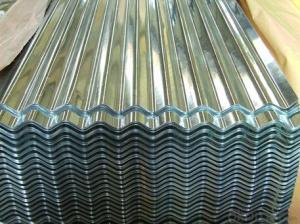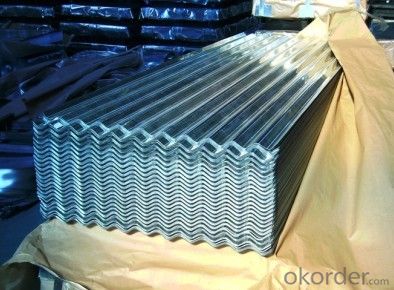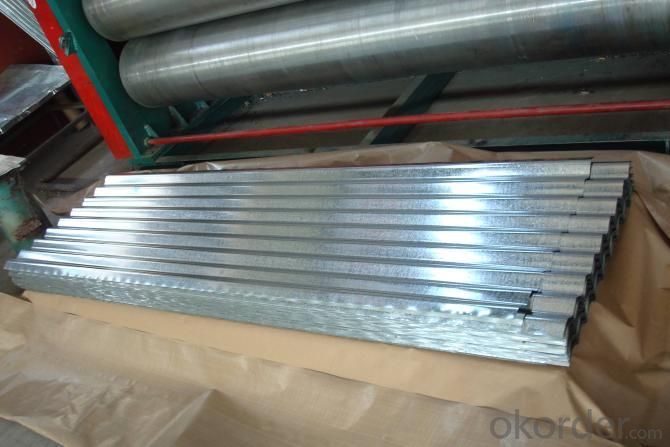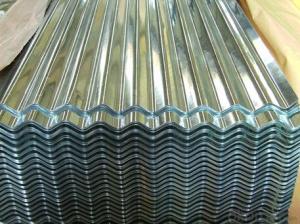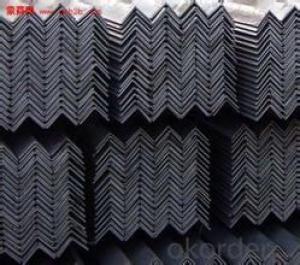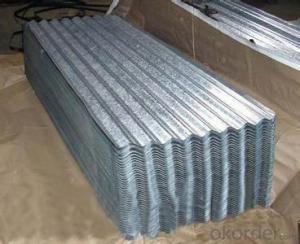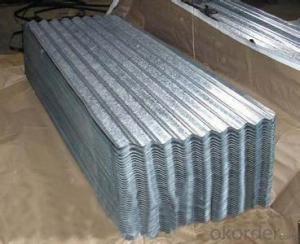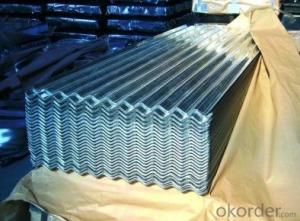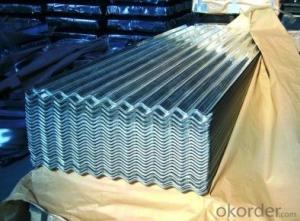Hot-Dip Galvanized Steel Roof with High Quality of China
- Loading Port:
- Shanghai
- Payment Terms:
- TT OR LC
- Min Order Qty:
- 100 m.t.
- Supply Capability:
- 10000 m.t./month
OKorder Service Pledge
OKorder Financial Service
You Might Also Like
1. Hot-Dip Galvanized Steel Roof Description:
Hot-dip galvanized steel roof are available with a pure zinc coating through the hot-dip galvanizing process. It offers the economy, strength and formability of steel combined with the corrosion resistance of zinc. The hot-dip process is the process by which steel gets coated in layers of zinc to protect against rust. It is especially useful for countless outdoor and industrial application.
2.Main Features of the Hot-Dip Galvanized Steel Roof:
• Excellent process capability
• Smooth and flat surface
• Workability, durability
• Excellent heat resistance performance
• High strength
• Good formability
• Good visual effect
3.Hot-Dip Galvanized Steel Roof Images
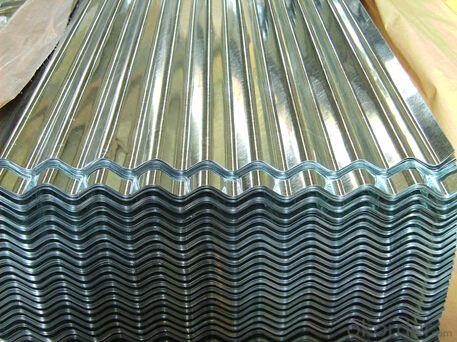
4.Hot-Dip Galvanized Steel Roof Specification
Material: Galvanized Sheet
Width: 650/800/890/900
Length: 1500/1800/2000/2400/3005/3600 or customized
Thickness: 0.2-2.0
Surface Treatment: Hot dipped/Bended
Application: warehouse; shelter; Commercial facilities; industrial facilities
5.FAQ of Hot-Dip Galvanized Steel Roof
Which payment term we can do?
L/C at sight or T/T.
What’s the basic material of this product?
Galvanized/Aluzinc Steel
- Q: What are the challenges in coil recoiling for high-strength steel?
- There are several challenges associated with coil recoiling for high-strength steel. Firstly, high-strength steel is known for its increased hardness and strength, which makes it more difficult to coil compared to regular steel. The higher tensile strength of high-strength steel puts more stress on the recoiling equipment, leading to potential damage or failure of the machinery. Secondly, high-strength steel tends to have lower ductility, meaning it is less able to withstand deformation without fracturing. Recoiling high-strength steel coils requires careful handling and control to prevent any excessive bending or stretching that could cause the material to break or crack. Another challenge is the shape memory effect of high-strength steel. This phenomenon causes the material to return to its original shape after being deformed. While this property can be advantageous in some applications, it complicates the recoiling process as the steel coil may resist being reshaped into a new coil form. Furthermore, high-strength steel often has a more complex microstructure compared to regular steel, with different phases and grain boundaries. This complexity can make the recoiling process more challenging as it may affect the material's mechanical properties and response to deformation. Lastly, the surface finish of high-strength steel coils is critical for many applications. Recoiling can introduce surface defects, such as scratches or marks, which may affect the functionality or appearance of the final product. Therefore, maintaining a high-quality surface finish during the recoiling process is a significant challenge. In summary, the challenges in coil recoiling for high-strength steel include the increased stress on recoiling equipment, lower ductility, shape memory effect, complex microstructure, and the need for a high-quality surface finish. Overcoming these challenges requires specialized equipment, precise control, and careful handling to ensure the integrity and quality of the recoiled high-strength steel coils.
- Q: How many pounds can steel lift?
- I think that you failed to put up a meaningful question. I suggest that you try again and seek help.
- Q: Can steel coils be transported by air?
- Yes, steel coils can be transported by air. Air freight companies have the capability to transport heavy and oversized cargo, including steel coils, using specialized aircraft and equipment. However, due to their weight and size, transporting steel coils by air can be more expensive compared to other modes of transportation such as sea or rail.
- Q: I'm doing a commercial for chemistry and I need to know any kind of chemistry dealing with Callaway Big Bertha Irons. I know they are stainless steel but any more info would help out! Thank you! :)
- Stainless steel is a mixture of metals, each metal is included in order to make up for each others weaknesses. Each metal is included due to a property that is benificial in some way, for instance Chromium is included because it makes the stainless steel 'stainless'. In chemistry a mixture of metals, stainless steel, is called an alloy.
- Q: What are the pros and cons to selecting a graphite shaft sand wedge over steel shaft?
- Graphite Shaft Wedges
- Q: How are steel coils inspected for quality assurance?
- Steel coils are inspected for quality assurance through a combination of visual inspections, measurements, and non-destructive testing techniques. These inspections typically involve checking for surface defects, such as cracks, scratches, or corrosion, as well as ensuring the dimensions and weight of the coils meet the required specifications. Non-destructive testing methods, such as ultrasonic or magnetic particle testing, are also used to detect any internal defects that may not be visible to the naked eye. Overall, these comprehensive inspections help ensure that steel coils meet the desired quality standards.
- Q: What processes and materials are used in the production of chrome steel
- well, save up some more $$. I wouldnt feel safe on a $120 mountain bike. My advice would be to invest in something that's a little more money. Also, why do you want a steel frame? Aluminum frames today are made from 7005 alloy, and stack up very well compared to the durability of steel. Plus, they wiegh alot less. Nowadays, youll only find steel on a cheap walmart bike, ir a top notch downhill bike made for extream offf road conditions.
- Q: What are the applications of steel coils in the aerospace industry?
- The aerospace industry relies heavily on steel coils for various purposes. One important application is in the manufacturing of aircraft structures. Steel coils are commonly used to fabricate wing spars, fuselage frames, and landing gear, as they possess high strength and durability necessary to withstand heavy loads and extreme conditions. Another significant use of steel coils in the aerospace industry is in the production of engine components, specifically turbine blades. These blades experience high temperatures and rotational forces, making it crucial to utilize steel coils due to their excellent heat resistance and mechanical properties. This ensures the reliability and performance of aircraft engines. Steel coils also find utilization in the production of fasteners and connectors necessary for securely joining different parts of an aircraft. Bolts, nuts, and rivets made from steel coils are essential for maintaining the structural integrity and safety of the aircraft. These fasteners need to possess high tensile strength and corrosion resistance. Furthermore, steel coils are employed in the production of fuel tanks and hydraulic systems. The weldability and formability of steel allow for the efficient fabrication of these complex structures. Steel coils can be shaped into various sizes and configurations, providing flexibility in designing fuel tanks and hydraulic components that meet specific requirements. In conclusion, steel coils are indispensable in the aerospace industry. Their use in aircraft structures, engine components, fasteners, and fuel tanks highlights their versatility and reliability. The exceptional strength, durability, heat resistance, and formability of steel make it the preferred material for various aerospace applications, ultimately ensuring the safety and performance of aircraft.
- Q: How are steel coils protected from humidity?
- Steel coils are protected from humidity by applying a layer of corrosion-resistant coating, such as zinc or aluminum, to the surface of the coils. This coating acts as a barrier, preventing moisture from coming into direct contact with the steel and reducing the risk of corrosion. Additionally, the coils are often stored in a controlled environment with low humidity levels to further minimize the impact of moisture.
- Q: How are steel coils used in the agricultural sector?
- Various purposes in the agricultural sector call for the widespread use of steel coils. One primary utilization is seen in the construction of farm machinery and equipment. Tractors, plows, harvesters, and other heavy-duty machinery are frequently manufactured using steel coils. The exceptional strength and durability of steel make it an ideal material for such applications, as it can endure the challenging conditions of agricultural work. Furthermore, agricultural buildings and structures heavily rely on steel coils in their construction. Steel is renowned for its superior structural integrity, making it a popular choice for barns, storage units, and other agricultural facilities. Steel coils are frequently employed to establish the framework and support systems of these structures, providing stability and long-lasting durability. Moreover, irrigation systems also rely on steel coils in their production. Steel coils are often used to create the pipes and tubes used for water transportation in agricultural irrigation systems. Steel's resistance to corrosion and its ability to handle high-pressure flows make it an excellent choice for this particular application. To summarize, steel coils hold a critical role in the agricultural sector. Whether it be the construction of farm machinery and buildings or the development of irrigation systems, steel's strength and durability make it the preferred material in this industry.
Send your message to us
Hot-Dip Galvanized Steel Roof with High Quality of China
- Loading Port:
- Shanghai
- Payment Terms:
- TT OR LC
- Min Order Qty:
- 100 m.t.
- Supply Capability:
- 10000 m.t./month
OKorder Service Pledge
OKorder Financial Service
Similar products
Hot products
Hot Searches
Related keywords
